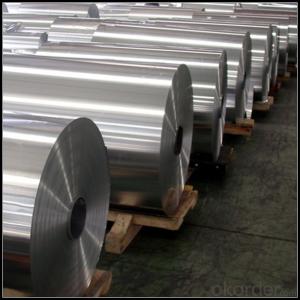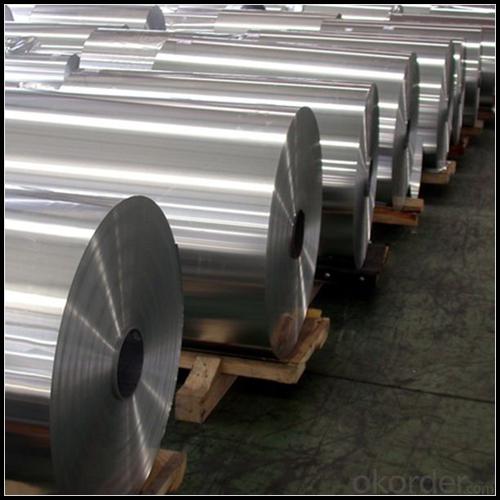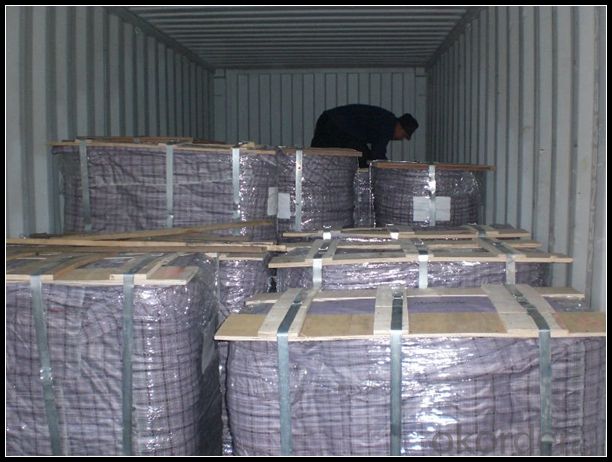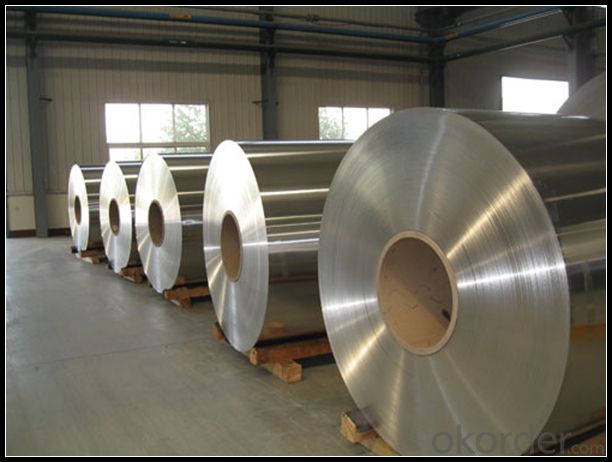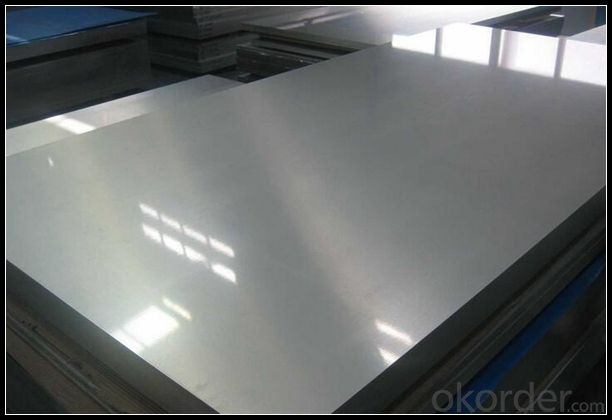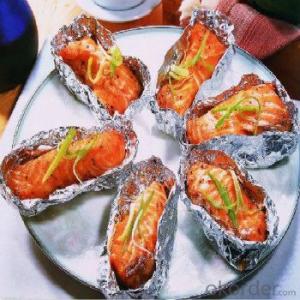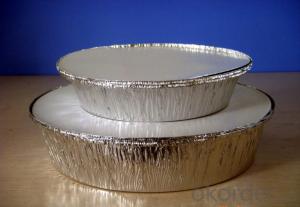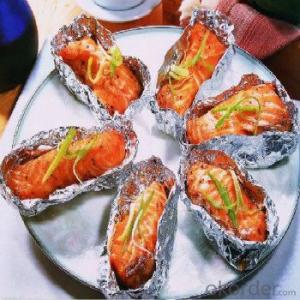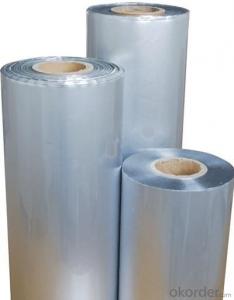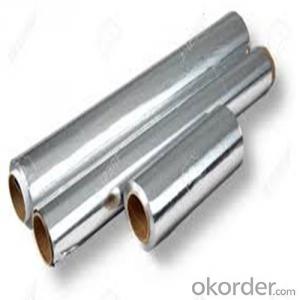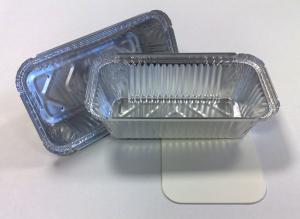Custom Aluminum Coil for High Quality Food Package Aluminum Foil
- Loading Port:
- Shanghai
- Payment Terms:
- TT OR LC
- Min Order Qty:
- 5 m.t.
- Supply Capability:
- 3800 m.t./month
OKorder Service Pledge
OKorder Financial Service
You Might Also Like
Specification
1. Specification of Aluminum
1) Alloy | 1050,1060,1100, 3003 3004 3105 3005 5005 5052 etc |
2) Temper | O/H12/H14/H1/H18/H32/H34/H36/H38//H111/H112/H116/H321/T6/T651/T3/T351 etc |
3) Thickness | 0.1mm to 6mm |
4) Width | 20mm to 3300mm |
5) Coil weight | 100kgs to 6 tons depends on actual requirement |
6) Core material | Aluminum alloy |
7) Coil Inner diameter | 76mm, 152mm,or as required |
2. Application of Aluminum
(1).Interior: wall cladding, ceilings, bathrooms, kitchens and balconies, shutters, doors...
(2).Exterior: wall cladding, facades, roofing, canopies, tunnels,column covers , renovations...
(3).Advertisement: display platforms, signboards, fascia, shop fronts...
3. Feature of Aluminum
*Such coil is specially designed to replace aluminum ingot, due to the high export tax of aluminum ingot, the coil has better price than ingot.
*This type of coil can fit customer's remelting furnace just like ingot, no need to make any change to the production line that was previously used for ingot. The standard coil size and weight is very suitable for the feed gate of furnace.
*This type of coil causes less material wastage than ingot when remelted.
*Our coil is made directly from ore, no need to go though the ingot making process, quality is much better than other suppliers who use ingot scrap to make coil.
Be free from Oil Stain, Dent, Inclusion, Scratches, Stain, Oxide Dicoloration, Breaks, Corrosion, Roll Marks, Dirt Streaks and other defect which will interfere with use
4. Certificate:
SGS and ROHS(if client request, paid by client), MTC(plant provided), Certificate of Origin(FORM A, FORM E, CO), Bureau Veritas and SGS (if client request, paid by client), CIQS certificate
5. Image of Aluminum
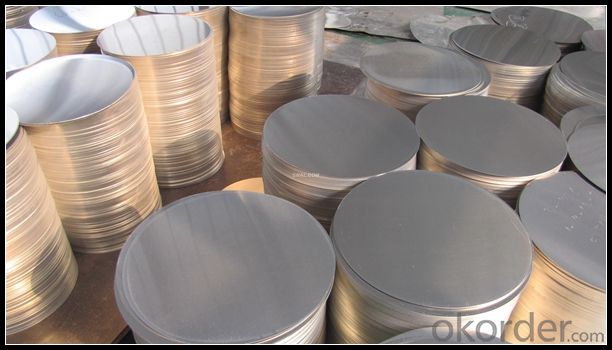
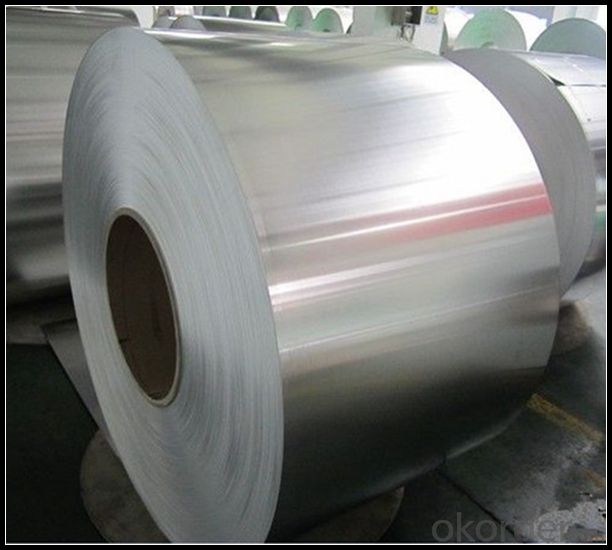
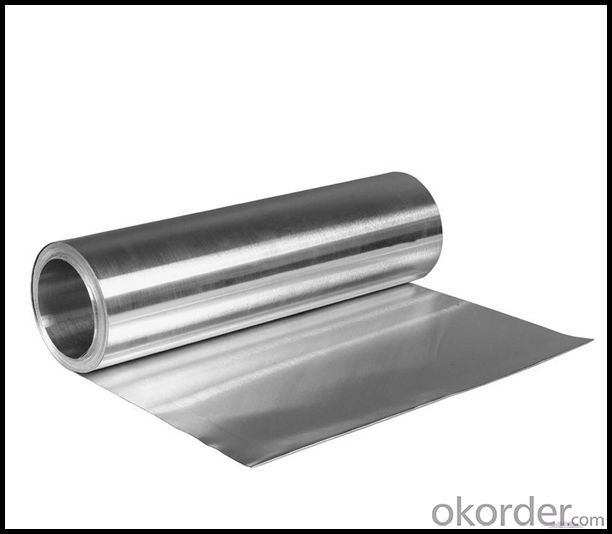
6. Our Service
1. Reply your enquiry in 24 working hours. |
2. OEM, buyer design, buyer label services provided. |
3. Exclusive and unique solution can be provide to our customer by our well traned and professional engineers and staffs. |
4. We can provide free sample for your check |
5. We have the certification of ISO 9001 |
6. Timely delivery |
7. Special discount and protection of sales area provided to our distributor. |
8. Good after-sale service. |
7. FAQ
Q: What is the produce prase? |
A: Normally it would be 40days after received your deposit. |
Q: Can you provide free samples? |
A: Yes, free samples will be sent to you on freight at destination. |
Q: Can I get your latest catalogue? |
A: Yes, it will be sent to you in no time. |
Q: What is the MOQ? |
A: 3 tons |
Q: What are your payment terms? |
A: We accept L/C, D/A, D/P, T/T, West Union,etc. |
- Q: What are the common sizes and thicknesses of aluminum coils?
- The sizes and thicknesses of aluminum coils differ depending on the application and industry. However, there are standard sizes and thicknesses that are commonly utilized across various industries. Regarding size, aluminum coils typically span from approximately 12 to 72 inches in width. This range allows for adaptability in accommodating diverse production processes and equipment. The length of the coils can also vary, but it often falls within the 1000 to 6000 feet range. Concerning thickness, aluminum coils are available in different gauges, typically measured in inches or millimeters. The most frequently employed thicknesses for aluminum coils range from 0.019 inches (0.48 mm) to 0.125 inches (3.18 mm). These thicknesses are suitable for a broad array of applications, including roofing, construction, automotive, and manufacturing. It is important to note that these are general guidelines, and the specific requirements for size and thickness may differ depending on the intended use of the aluminum coils. Additionally, custom sizes and thicknesses can also be manufactured to fulfill specific project requirements.
- Q: What is the maximum coil weight for aluminum coils?
- The maximum coil weight for aluminum coils can vary depending on various factors such as the thickness and width of the coil, as well as the specific alloy being used. Generally, the maximum coil weight for aluminum coils ranges from around 5,000 to 25,000 pounds. However, it is important to note that these figures are approximate and can differ depending on the manufacturer's guidelines and equipment capabilities. Additionally, it is always recommended to consult the manufacturer or supplier for specific coil weight limitations to ensure safe handling and transportation.
- Q: What industries utilize aluminum coils?
- There are several industries that utilize aluminum coils for various purposes. One of the major industries that extensively uses aluminum coils is the construction industry. Aluminum coils are commonly used for roofing, siding, and gutter systems due to their lightweight nature, durability, and resistance to corrosion. Additionally, the transportation industry also relies heavily on aluminum coils for manufacturing automotive parts, such as radiators, condensers, and heat exchangers, as aluminum is known for its excellent heat transfer properties. The packaging industry also utilizes aluminum coils for producing cans and containers due to their ability to preserve the freshness and quality of food and beverages. Moreover, the electrical industry relies on aluminum coils for manufacturing transformers, electrical conductors, and wiring, as aluminum is a good conductor of electricity. Lastly, the aerospace industry uses aluminum coils for constructing aircraft parts, such as wings, fuselage, and structural components, as aluminum provides strength while keeping the weight of the aircraft low.
- Q: Can aluminum coils be anodized?
- Yes, aluminum coils can be anodized. Anodizing is an electrochemical process that enhances the natural oxide layer on the surface of aluminum, making it thicker, more durable, and resistant to corrosion. This process is commonly used for aluminum sheets, plates, and coils. Anodizing can be performed on both flat and formed aluminum coils, providing them with a range of attractive colors and finishes. The anodized coating also improves the aluminum's ability to accept paint and adhesives, making it a popular choice for various applications such as architectural cladding, automotive trim, and electronic components.
- Q: Are aluminum coils suitable for electrical insulation?
- No, aluminum coils are not suitable for electrical insulation as aluminum is a conductor of electricity, meaning it allows the flow of electric current rather than insulating it.
- Q: What is the cost-effectiveness of using aluminum coils compared to other materials?
- The cost-effectiveness of using aluminum coils compared to other materials depends on various factors such as the application, lifespan, and initial cost. Aluminum coils are widely used in various industries including construction, automotive, and HVAC due to their lightweight, corrosion resistance, and excellent thermal conductivity. These qualities make them a cost-effective choice in many applications. When compared to other materials like copper or steel, aluminum coils are generally more affordable. The initial cost of aluminum coils is typically lower, making them a cost-effective option for those working within a budget. Moreover, aluminum coils have a longer lifespan compared to some other materials. They are resistant to corrosion, which means they can withstand harsh environments, reducing the need for frequent replacements. This longevity can result in long-term cost savings. Additionally, aluminum is highly recyclable, making it environmentally friendly. The recycling process for aluminum requires significantly less energy compared to mining and refining new materials. This aspect further contributes to the cost-effectiveness of using aluminum coils. However, it is important to note that in certain applications, other materials may be more suitable. For example, copper coils are known for their superior heat transfer properties, making them ideal for specific HVAC systems where efficiency is crucial. In conclusion, the cost-effectiveness of using aluminum coils compared to other materials depends on the specific requirements of the application. While aluminum coils generally offer affordability, longevity, and recyclability, it is essential to consider factors such as heat transfer, system efficiency, and initial investment to determine the most cost-effective option for a particular project.
- Q: Are aluminum coils suitable for food and beverage packaging?
- Yes, aluminum coils are suitable for food and beverage packaging. Aluminum is a versatile material that offers various advantages for packaging applications. It is lightweight, making it easy to transport and handle. Aluminum is also highly resistant to corrosion, which ensures that the packaging remains intact and protects the contents from external factors. Additionally, aluminum has excellent thermal conductivity, allowing for efficient heat transfer, which is beneficial for food and beverage products that require temperature control. It is also impermeable to light, moisture, and oxygen, providing an excellent barrier to maintain the quality and freshness of the packaged items. Furthermore, aluminum is recyclable and can be reused, making it an environmentally friendly choice for packaging. Overall, aluminum coils are a reliable and suitable option for food and beverage packaging due to their durability, protective properties, and sustainability.
- Q: What are the potential applications of recycled aluminum coils?
- Due to their numerous advantageous properties, recycled aluminum coils offer a wide range of potential applications. One such application lies in the manufacturing of automotive parts, where aluminum coils can be utilized to create lightweight body panels, engine components, and structural parts. This, in turn, can effectively decrease the overall weight of vehicles, leading to enhanced fuel efficiency and reduced emissions. In the construction industry, recycled aluminum coils can be employed to produce roofing materials, siding, gutters, and window frames. Aluminum's durability, corrosion resistance, and ability to withstand extreme weather conditions make it an ideal choice for construction purposes. Moreover, packaging materials can benefit from the use of recycled aluminum coils. Aluminum's exceptional barrier properties make it a popular choice for manufacturing beverage cans, food containers, and foil packaging. This aids in preserving the freshness and quality of the packaged products, while also reducing the environmental impact associated with the production of new aluminum and minimizing waste. Furthermore, the production of electrical equipment can make use of recycled aluminum coils. Aluminum's excellent conductivity of electricity makes it suitable for manufacturing electrical wires, cables, and other components. This not only conserves energy but also reduces the necessity for extracting and processing virgin aluminum. In conclusion, the potential applications of recycled aluminum coils span across various sectors, including automotive, construction, packaging, and electrical equipment. By embracing the utilization of recycled aluminum coils, we can achieve both environmental and economic benefits by reducing waste, conserving resources, and promoting sustainability.
- Q: A bit of a question for the 1911 experts roaming around here. Per-say someone, who knew their way around a 1911 built one on an aluminum frame. To top it all off, if the finished gun were to be chambered in .38 super... how long would this combination last? I've heard horror stories about aluminum frames, and then I've heard some wonderful things... this question was to see if anyone had ever thought about/done this sort of thing before. Something tells me that Aluminum + .38 super wouldn't last too long... Most informative answer gets the ten point prize as usual.
- Alloy is great for one thing. Making a gun lighter to carry around. If it was something I was going to shoot substantial amounts of ammo through, I would stick with a caliber that is a bit lower pressure-wise. No +P ever! You can expect about half the life a steel frame would give you. There are many 1911's in 38 Super with alloy frames. How many are shot out is another matter. Personally, I really wouldn't worry about it unless you are burning through more than say 100 rounds a month. Even at that, it should be 15 or 20 years before you would have to worry about it. If it's going to be a competition gun, ditch the alloy frame in favor of a steel one. The added weight will help minimize muzzle climb.
- Q: need to know the procedure for removal of aluminum windows with brick trim
- I removed all of mine from the inside, not that this will work for you. I removed all of the inside wood pieces holding the window, there were no pieces on the bottom. If there is a nailing fin, you may now cut this from the inside. If these windows replaced other windows in the past, or are not original to the house, there may be no fin at all, there could be screws or they may just all be held in by the trim, you will find out. If the windows are operable, you may be able to at least get the operable piece out, making the whole thing lighter and less likely to break all over the place. If you do not mind broken glas, you can break the old one and the frame will sorta crumple for you, making it easier to pull out. When you slip the new ones in, the can go in tight to whatever was holding the other windows. If you have all of your interior trim pieces ready (they may need to be a different width than the original if the new windows are thicker) and make sure you caulk it to death first ( on the top and two sides of the building where it will squish up against it), then shove it in, use some shims to level it (oh, do NOT buy windows the EXACT size of the opening, I believe at least 1/4 to 1/2 shy is best ot allow for shimming, leveling, and squaring up - I bought one like that, WHAT A NIGHTMARE), caulk inside the top and two sides, push your trim into place and shoot a few finish nails in. Go around and wipe off all excess caulk with a damp cloth.
Send your message to us
Custom Aluminum Coil for High Quality Food Package Aluminum Foil
- Loading Port:
- Shanghai
- Payment Terms:
- TT OR LC
- Min Order Qty:
- 5 m.t.
- Supply Capability:
- 3800 m.t./month
OKorder Service Pledge
OKorder Financial Service
Similar products
Hot products
Hot Searches
Related keywords
